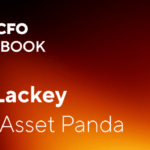3 Ways to develop people as a CFO
As a CFO, your plate is likely overflowing between partnering with the CEO and other business units, making big picture strategy decisions, and ensuring finance operations are running smoothly. But by taking the time to develop your team’s careers, you keep your best employees engaged and build a network you can rely on for decades to come.
Craig Foster, CFO at Picsart, a suite of online photo and video editing applications with a social creative community, has over 25 years of management experience and has worked on over 35 IPOs. As a CFO today, he also takes a lot of pride in his ability to mentor and provide value to the finance team:
‘A big part of being a CFO is creating influence and I’m going to teach [my team] how to be an influencer.’
We interviewed Craig on The CFO Playbook podcast, where he shared his best advice for being a hands-on CFO who nurtures his team for the betterment of their careers and the company.
1. Mentor aspiring CFOs
Don’t fear losing your brightest talent to their quest to become CFO, encourage it.
Craig believes it’s important to pay it forward and mentor those who aspire to a C-Suite finance position:
‘I’m working with a really great controller right now and he aspires to be a CFO. I know I can’t keep him here forever, but I’m going to teach him how the IRR works and I’m going to teach them about some of the capital allocation.’
Not only might they someday be a fellow CFO in your network, in the meantime this mentorship only makes your finance team stronger by keeping your best employees engaged and challenged in their roles.
2. Use automation to empower employees
You should encourage your team to seek out opportunities for automation.
Craig says that it’s part of his DNA as a CFO to automate absolutely everything that can be automated. And he’s backing up this statement with investment in technology:
‘What we’ve been very focused on is getting people to raise their hand. And educating that we as a finance team or a business services team can automate parts of these jobs. And it’s not because you have to fear losing your job, it’s because we’re going to make your job more important.’
Accounting may have a reputation for being mundane, but technology can help unlock opportunity to do more interesting work for your team.
3. Cultivate your own network
As you move across companies and business units throughout your career, make sure you don’t leave your network behind.
From Craig’s early days at LoudCloud to his years working in investment banking, he stresses how necessary it is to be intentional about building an ecosystem of people to bond with and ask questions of:
‘That served me really well as I transitioned into a CFO. I had a mentorship of people that I built relationships with over the last 10 or 15 years that I could call on.’
Keep in touch with mentors from early in your career, and build lasting relationships with mentees on your own team – it will reward you and them for years to come.
Pay forward the opportunities you received early on
Hands-on leadership means going the extra mile for your team to help foster the leaders of tomorrow. It’s an ongoing investment that not only has ripple effects for the organisation but also your career.
Sign up to The CFO Playbook Newsletter
Get extra insights from the podcast every Tuesday, to help you thrive in your business and career.







